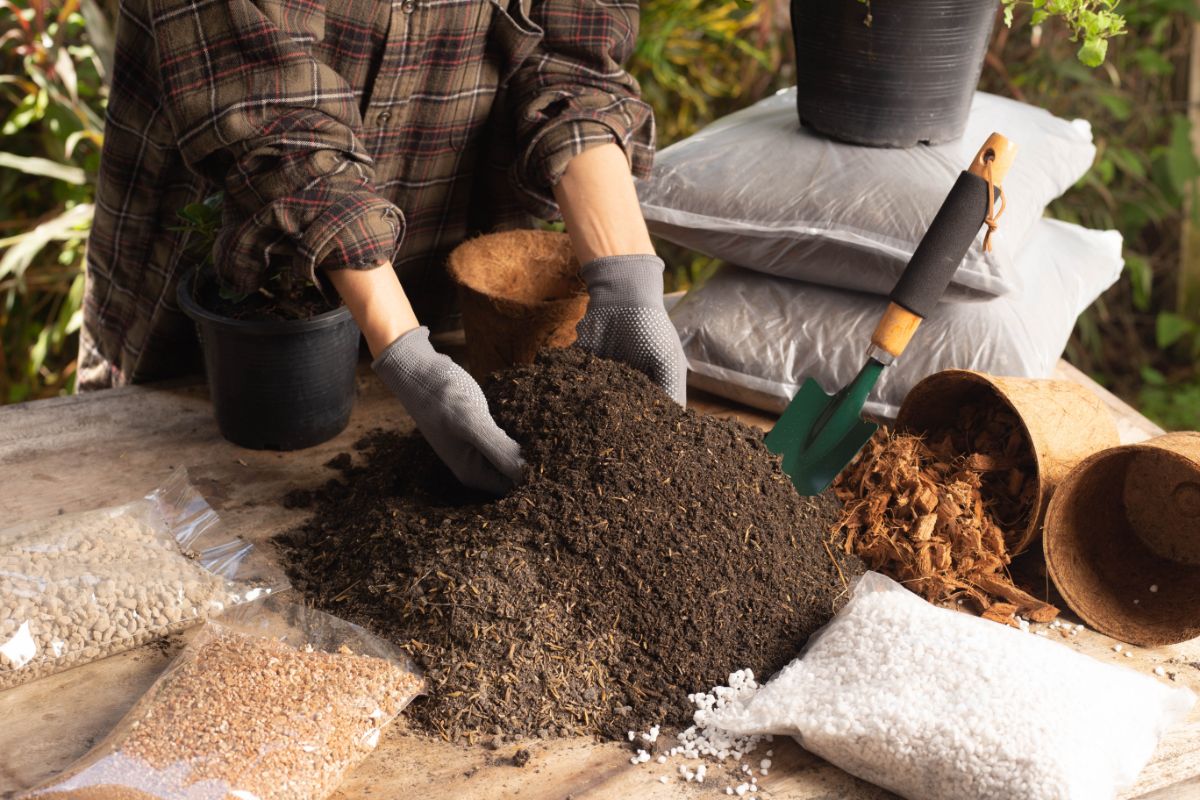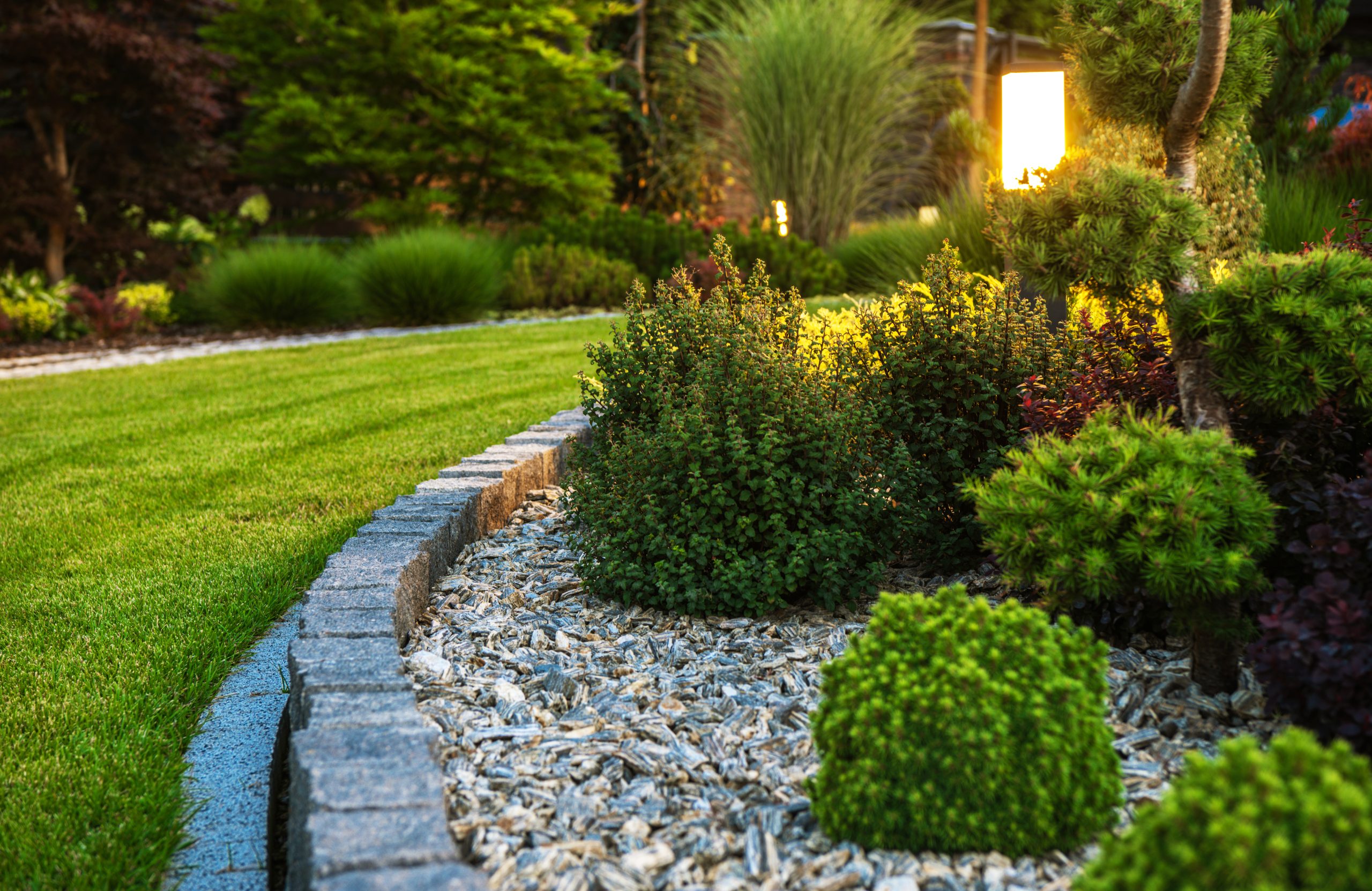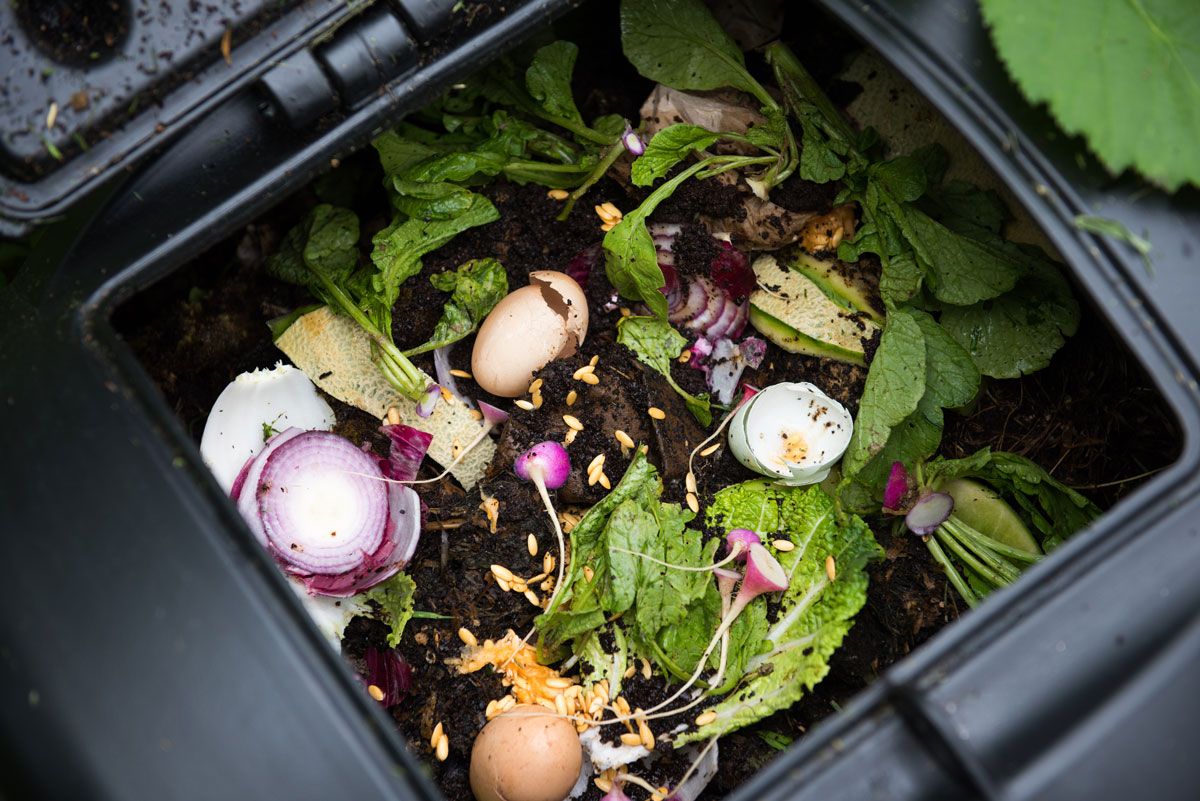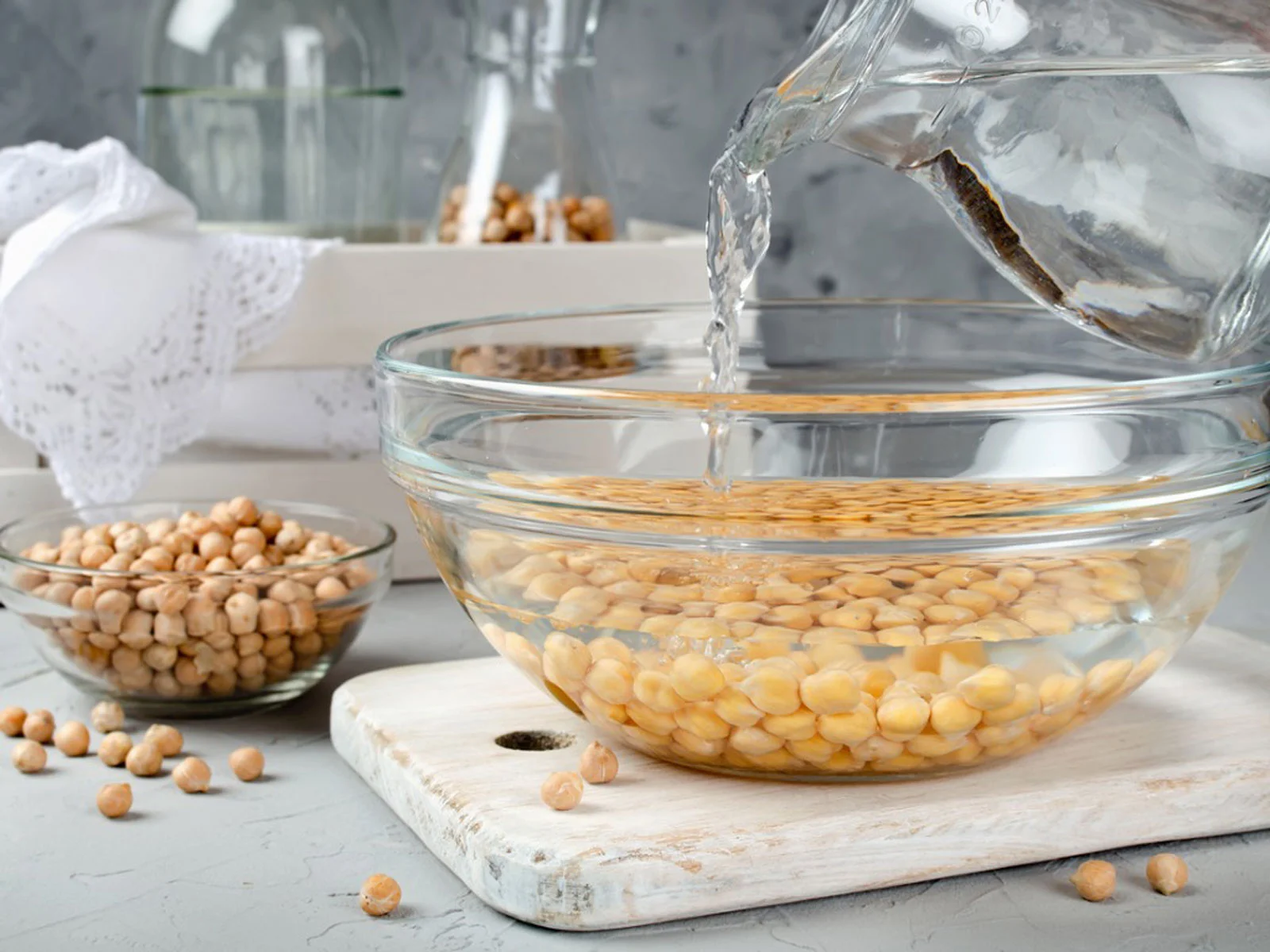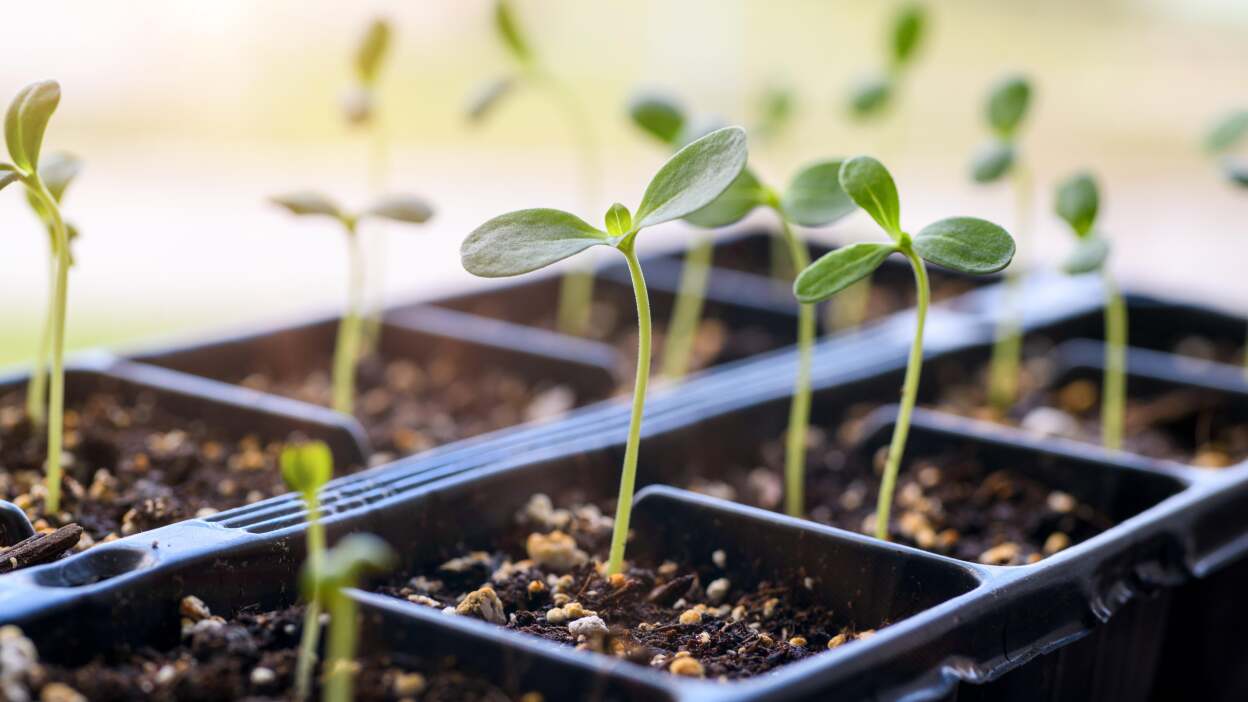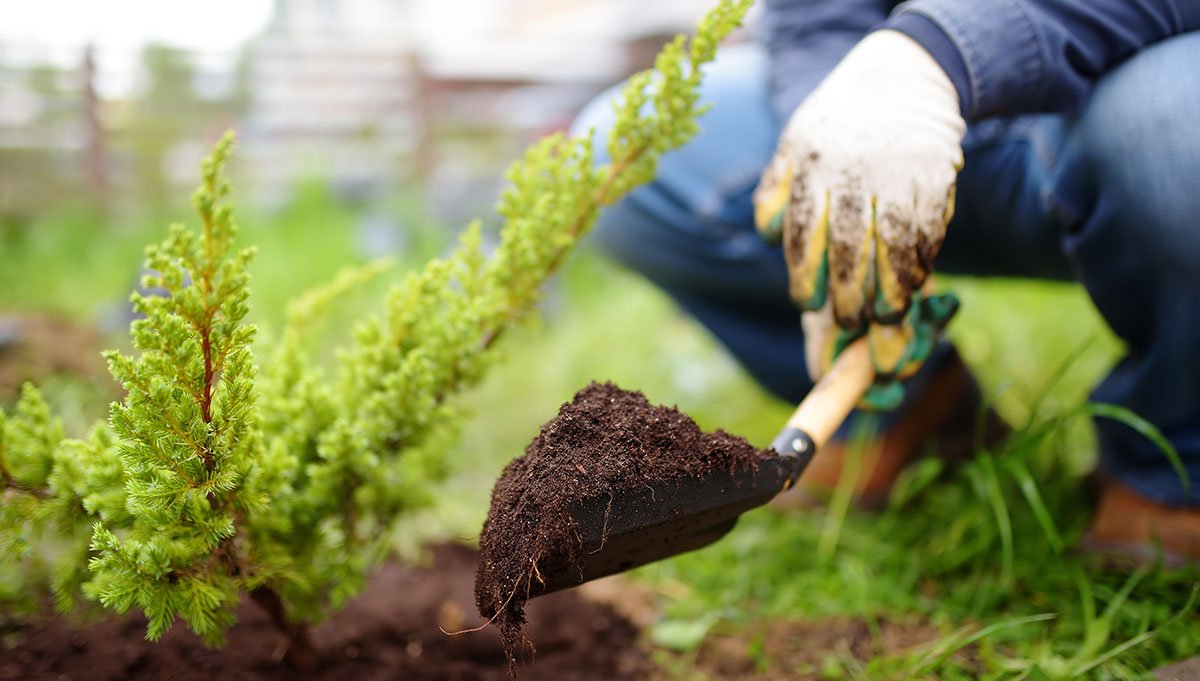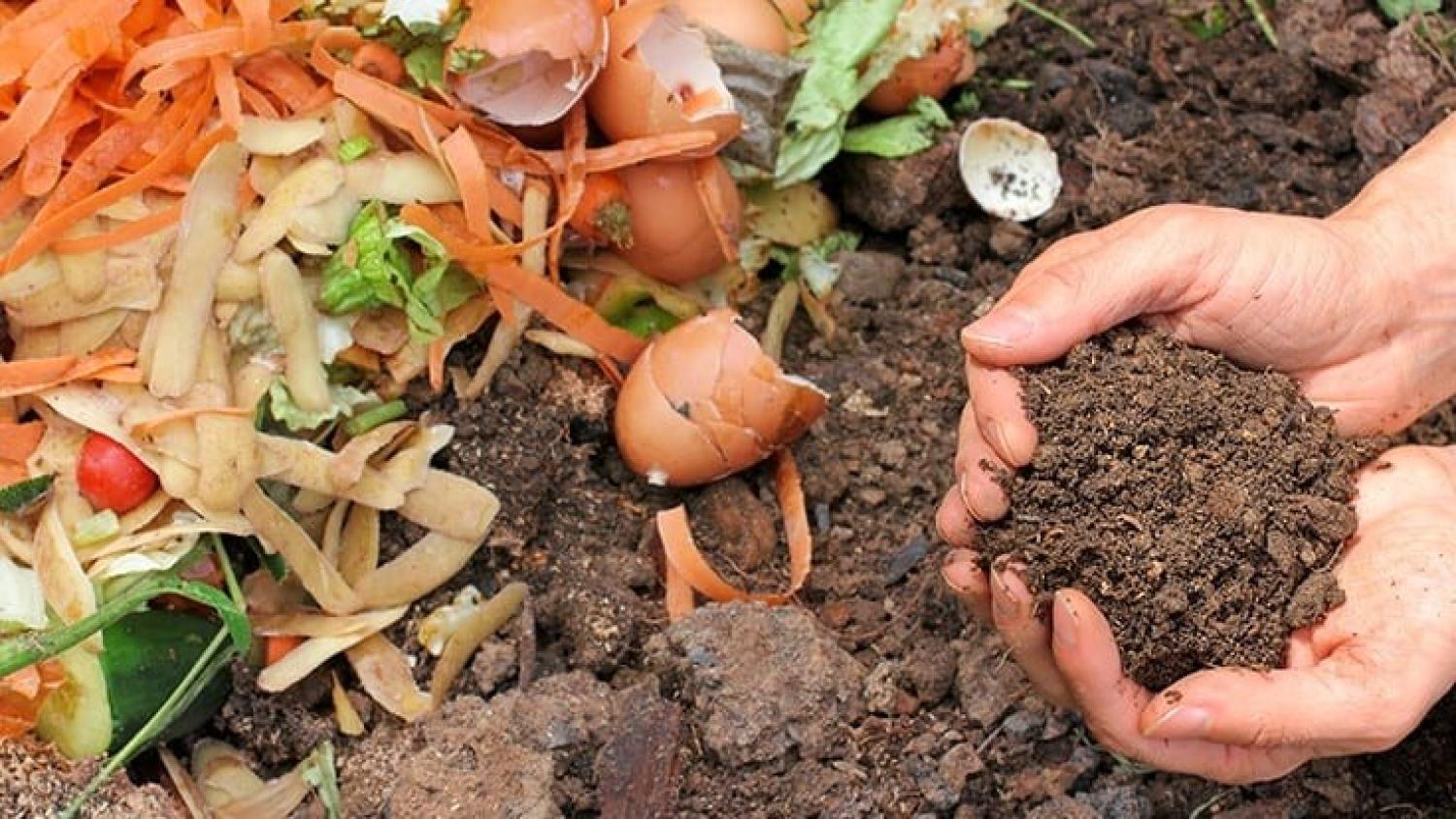Home>Gardening Tips and Tricks>Eco-Friendly Gardening>What Should You Not Put In Compost?
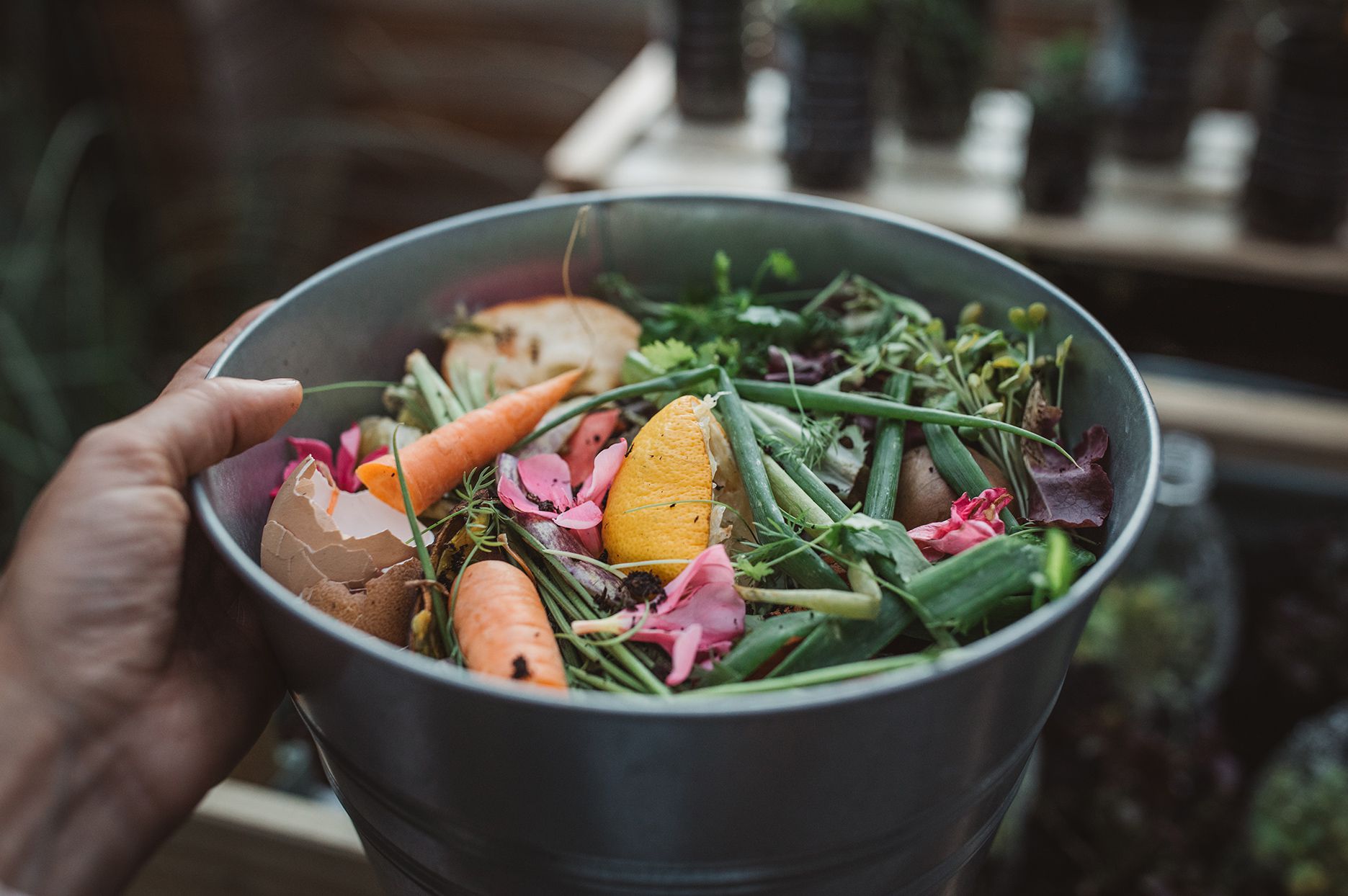

Eco-Friendly Gardening
What Should You Not Put In Compost?
Modified: February 9, 2024
Discover what items you should avoid putting in your compost for eco-friendly gardening. Create nutrient-rich soil without harmful substances.
(Many of the links in this article redirect to a specific reviewed product. Your purchase of these products through affiliate links helps to generate commission for Chicagolandgardening.com, at no extra cost. Learn more)
Table of Contents
Introduction
Welcome to the world of eco-friendly gardening! If you’re passionate about creating a sustainable and environmentally-conscious garden, you’re in the right place. Eco-friendly gardening practices are essential for preserving our planet’s natural resources, reducing waste, and promoting a healthy ecosystem. One key aspect of eco-friendly gardening is composting, a process that transforms organic matter into nutrient-rich soil amendment.
Composting is a fantastic way to reduce household waste, improve soil quality, and provide your plants with the nutrients they need. However, it’s important to note that not all materials are suitable for composting. Some items can disrupt the composting process, introduce harmful substances, or attract unwanted pests. In this article, we’ll explore the top things you should avoid putting in your compost pile to ensure a successful and eco-friendly gardening experience.
By avoiding these specific items, you’ll help create a compost pile that is not only nutrient-rich but also safe for your plants, animals, and the environment as a whole. Let’s dive in and discover what should not be put in compost!
Meat and Dairy Products
While organic matter is the foundation of composting, it’s important to be selective about the types of organic materials you include. Meat and dairy products, such as leftover meat scraps, bones, cheese, or milk, should be avoided in the compost pile. These items not only attract pests like rodents and flies but also have a tendency to produce foul odors as they decompose.
The high protein and fat content in meat and dairy products make them slower to break down, leading to potential imbalances in the composting process. Additionally, the decomposition of these items can release harmful bacteria or pathogens, posing a risk to your plants and the overall health of your compost. Rather than adding meat and dairy to your compost, it’s best to dispose of them in a different manner, such as through municipal waste collection or by using a designated composting system for animal by-products.
However, if you’re an avid gardener who also raises chickens or livestock, a separate composting system for animal manure can be beneficial. This way, you can harness the nutrient-rich properties of manure while controlling the potential negative impacts on your garden.
Remember, a successful composting process relies on a balanced blend of organic materials, such as fruit and vegetable scraps, yard waste, and shredded paper or cardboard. By avoiding meat and dairy products, you’ll create an optimal environment for decomposition and produce a high-quality compost that will nourish your plants and promote a thriving ecosystem.
Oily or Fatty Foods
When it comes to composting, it’s best to steer clear of oily or fatty foods. Materials like cooking oil, grease, butter, and fatty food scraps should not be added to your compost pile. While these items may technically be organic, they can cause a range of issues in the composting process.
Oily or fatty substances take longer to break down compared to other compostable materials. As a result, they can create anaerobic conditions in the compost pile, leading to unpleasant odors, slow decomposition, and the growth of harmful bacteria. These conditions also attract pests, such as rats, raccoons, and flies, which can disrupt the composting process or become a nuisance in your garden.
It’s important to note that small amounts of oil or fats found in food scraps like avocado peels or nut shells are generally fine to add to the compost. However, large quantities or concentrated forms of oils and fats should be avoided. If you have substantial amounts of cooking oil or grease to dispose of, it’s best to contact your local waste management facility or recycling center for proper disposal methods.
To ensure efficient composting, focus on adding a balanced mix of materials, such as fruit and vegetable scraps, coffee grounds, yard waste, and shredded paper or cardboard. These will provide the necessary carbon and nitrogen ratios for decomposition, while avoiding the complications that oily or fatty foods can cause.
Remember, maintaining a healthy compost pile requires attentiveness and thoughtful decision-making when it comes to what you include. By avoiding oily or fatty foods, you’ll help create a compost pile that smells fresh, decomposes efficiently, and serves as a valuable addition to your garden.
Diseased Plants
When practicing eco-friendly gardening, it’s important to prioritize the health of your garden ecosystem. One key aspect of this is being cautious about including diseased plants in your compost pile. While composting can help break down organic matter, it’s not effective in eliminating plant diseases.
Diseased plants can harbor pathogens and pests that can survive the composting process and potentially spread to your garden when the compost is used as a soil amendment. By adding diseased plants to your compost, you risk introducing harmful organisms that can infect your healthy plants and compromise the overall vitality of your garden.
If you notice signs of disease, such as mold, fungal growth, or insect infestations, it’s best to remove and dispose of the affected plants separately. You can either send the diseased plants to a green waste facility or seal them in a bag and place them in your regular trash. This will help prevent the spread of diseases and maintain a healthy composting environment.
It’s worth noting that while healthy plant material is suitable for composting, it’s a good practice to chop or shred it into small pieces before adding it to the pile. This aids in the decomposition process and reduces the risk of potential disease transmission. Additionally, maintaining proper temperatures in your compost pile can also help kill off pathogens and weed seeds.
Prioritizing the health of your garden by excluding diseased plants from your compost pile will contribute to a thriving ecosystem. By being selective about what plant materials you compost, you’ll minimize the risk of disease spread and promote the overall well-being of your garden.
Pet Waste
As much as we love our furry friends, it’s important to handle their waste responsibly, especially when it comes to composting. Pet waste, including dog or cat feces, should not be added to your compost pile. While it may seem like an organic material, pet waste carries harmful bacteria, parasites, and pathogens that can pose a risk to human health and contaminate your compost.
The heat generated in a typical backyard compost bin is generally not sufficient to kill off the harmful microorganisms present in pet waste. Adding it to your compost pile can increase the chances of introducing these pathogens into your garden soil, which can be transferred to fruits, vegetables, or any other plants grown in the contaminated soil.
Instead of composting pet waste, it is recommended to dispose of it in a separate, designated area away from your vegetable garden or compost. You can use biodegradable bags to collect the waste and then dispose of it in your regular trash bin. Some municipalities may offer specific disposal options for pet waste, such as composting services dedicated to animal waste, so be sure to check with your local waste management facilities for guidance.
While pet waste should be kept out of your composting efforts, it’s important to regularly clean up your pet’s waste from your garden or lawn to maintain a healthy and hygienic outdoor environment. By properly disposing of pet waste, you can ensure the safety of your compost and protect the well-being of both your garden and your beloved pets.
Weed Seeds and Invasive Plants
Gardening enthusiasts know how important it is to keep weeds under control. One way to prevent weed growth is by avoiding the inclusion of weed seeds and invasive plants in your compost pile. While composting can effectively break down organic matter, it may not reach the temperatures necessary to kill weed seeds or invasive plant parts, allowing them to survive and potentially spread in your garden when you use the compost.
Weed seeds are designed to withstand harsh conditions and can remain viable even after going through the composting process. By including weeds with mature seeds in your compost, you risk spreading them throughout your garden when you use the finished compost as mulch or soil amendment. Similarly, invasive plants that have the ability to regenerate from small plant fragments can also find their way back into your garden through the use of contaminated compost.
To avoid this, it’s essential to properly handle and dispose of weeds and invasive plants. When weeding your garden, make sure to remove any flowering or seeding parts of the plants. These can be disposed of in your regular trash or through green waste collection. If you have a large infestation of invasive plants, it may be best to consult with a local professional or extension service regarding the proper disposal methods in your area.
While it’s true that the composting process can generate heat and break down organic matter, it’s not foolproof when it comes to eliminating weed seeds and invasive plants. Taking the extra step to carefully manage and dispose of these unwanted plants will help maintain a weed-free garden and prevent the spread of invasive species.
Charcoal Ash or Coal Dust
If you enjoy a backyard barbecue or use charcoal for cooking or heating, it’s important to know that the ash produced from charcoal or coal should not be added to your compost pile. Charcoal ash and coal dust might seem like harmless organic material, but they can contain toxic substances and heavy metals that can harm your plants and contaminate your compost.
Charcoal ash, in particular, often contains residual chemicals, lighter fluid, or other additives used in the charcoal manufacturing process. These substances can be harmful to the beneficial microorganisms in your compost and may negatively affect the nutrient content of the compost. Additionally, coal dust can contain high levels of sulfur and other potentially harmful compounds that can disturb the balance of your composting process and harm the surrounding soil.
Instead of adding charcoal ash or coal dust to your compost, it is recommended to dispose of them in your regular trash or check if your local waste management facility has specific guidelines for their disposal. If you have a significant amount of charcoal ash or coal dust, it’s best to contact your local authorities or recycling centers for proper disposal instructions to ensure they are handled safely and responsibly.
Remember, composting thrives on organic materials and a healthy balance of beneficial microorganisms. By avoiding the inclusion of charcoal ash or coal dust in your compost pile, you’ll provide a safer and more productive environment for decomposition, resulting in nutrient-rich compost that benefits your garden without introducing potential toxins.
Glossy or Coated Paper
Composting is a fantastic way to reduce waste, but not all paper products are suitable for the compost pile. Glossy or coated paper, such as magazines, brochures, and catalogs, should be kept out of your composting materials. The glossy or coated finish on these papers is achieved through the use of chemicals and non-biodegradable materials, making them unsuitable for composting.
The glossy coating prevents the paper from breaking down properly during the composting process. It can also introduce harmful substances, such as heavy metals or chemicals, into the compost heap. These substances can have detrimental effects on the soil and the overall health of your plants when the compost is applied to your garden.
While natural, uncoated paper, like newspaper or cardboard, is great for composting due to its carbon content, glossy or coated paper should be sent for recycling or disposed of in the regular trash bin. Recycling is a more suitable and eco-friendly option for these types of paper, as it allows them to be properly managed and transformed into new products without introducing harmful substances into the environment.
By excluding glossy or coated paper from your compost pile, you ensure that your compost remains free from harmful chemicals and maintains a more natural and organic composition. Stick to using uncoated paper products and other biodegradable materials to create a healthier and more sustainable composting environment.
Synthetic Materials
When it comes to composting, it’s important to focus on natural, organic materials. Synthetic materials, such as plastic, rubber, or any non-biodegradable substances, should never find their way into your compost pile. These materials are not designed to break down in the same way that organic matter does, and their presence in the compost can have negative effects on both the environment and the quality of your compost.
Plastic materials, in particular, pose a significant threat to the composting process. Plastics can take hundreds of years to decompose, if at all, and can release harmful chemicals into the soil as they break down. Additionally, the inclusion of plastics can contaminate the compost with microplastics, which can have detrimental effects on soil health, water systems, and wildlife.
Other synthetic materials, such as rubber bands, synthetic fibers, or coated fabrics, should also be kept out of the compost pile. These materials do not break down naturally and can disrupt the decomposition process. Rather than adding them to your compost, it’s best to find alternative methods of disposal, such as recycling or proper waste management systems.
Remember, the goal of composting is to create a nutrient-rich and natural soil amendment. By ensuring that only organic materials are included, you’ll help create a compost pile that supports healthy plant growth and contributes to a sustainable garden ecosystem.
Chemicals and Pesticides
When it comes to eco-friendly gardening and composting, it’s crucial to avoid adding chemicals and pesticides to your compost pile. While some chemicals may break down during the composting process, others can persist and have long-lasting negative effects on the environment and your garden.
Chemicals often found in household products, such as cleaning agents, paint thinners, or pesticides, should never be included in your compost. These substances can contaminate the compost, introducing harmful chemicals into the soil and potentially harming the microorganisms and beneficial insects that play a vital role in the composting process.
Additionally, pesticides can have negative impacts on soil health, pollinators, and other beneficial organisms in your garden. If materials that have been treated with pesticides, such as herbicide-laden weeds or pesticide-soaked plant trimmings, are added to the compost pile, the chemicals can linger even after the composting process is complete.
Instead of composting materials treated with chemicals or containing pesticides, it’s best to dispose of them through proper hazardous waste collection or designated recycling programs. This ensures that these substances do not harm your garden or contribute to environmental pollution.
Avoiding the use of chemicals and pesticides in your garden altogether is also a proactive step towards eco-friendly gardening. Embrace natural alternatives, such as organic pest control methods or companion planting, to maintain a healthy garden ecosystem that doesn’t rely on harmful substances.
Remember, creating a compost pile that is free from chemicals and pesticides not only contributes to a healthier garden but also helps preserve the natural balance of the surrounding environment.
Non-Biodegradable Plastics
When it comes to composting, it’s essential to keep non-biodegradable plastics out of your compost pile. Plastics like plastic bags, plastic packaging, or any other items made from non-biodegradable materials have no place in a composting system. These materials do not break down naturally and can have severe consequences for the environment.
Adding non-biodegradable plastics to your compost pile poses several problems. Firstly, they will not decompose, leading to visible pieces of plastic in your finished compost. This not only detracts from the quality and appearance of the compost but can also pose a risk to plants and wildlife if ingested.
Furthermore, the inclusion of non-biodegradable plastics can hinder the aeration and moisture retention in the compost pile. This can result in poor decomposition and the production of unpleasant odors. The plastic can also obstruct the movement of beneficial organisms, such as earthworms, through the compost, disrupting the natural processes that contribute to the breakdown of organic materials.
Proper disposal of non-biodegradable plastics varies by location, but most municipalities offer recycling programs for plastic materials. Research your local recycling guidelines and recycle plastics accordingly. If recycling options are not available, dispose of these plastics in the regular garbage bin.
To maintain an eco-friendly composting system, opt for compostable alternatives to replace non-biodegradable plastics. Look for compostable bags, plant-based food containers, and packaging materials that break down naturally in the composting process.
By excluding non-biodegradable plastics from your compost pile, you contribute to the health of your garden, reduce plastic waste, and promote a more sustainable and environmentally-friendly way of gardening.
Conclusion
Cultivating an eco-friendly garden goes hand in hand with making informed choices about what to include in your compost pile. By avoiding certain items, such as meat and dairy products, oily or fatty foods, diseased plants, pet waste, weed seeds, charcoal ash or coal dust, glossy or coated paper, synthetic materials, chemicals and pesticides, as well as non-biodegradable plastics, you can ensure that your composting efforts align with sustainable and environmentally-conscious practices.
Composting is a powerful tool that not only reduces waste but also enriches the soil and supports the health of your plants. By selectively composting organic materials, you create an environment where beneficial microorganisms can thrive, decomposition can occur effectively, and nutrient-rich compost can be produced.
Remember, a successful composting process requires a balance of carbon-rich and nitrogen-rich materials, proper aeration, moisture, and vigilance in maintaining a healthy compost pile. By being mindful of what you include in your compost, you can avoid issues such as foul odors, pests, disease spread, and contamination of harmful chemicals or microplastics.
Incorporating eco-friendly gardening practices, including responsible composting, not only benefits your immediate garden but also contributes to the larger goal of promoting sustainability and protecting our planet. By embracing organic materials, nurturing a healthy garden ecosystem, and making conscious choices about the materials we use, we can create gardens that are not only beautiful and abundant but also in harmony with the environment.
